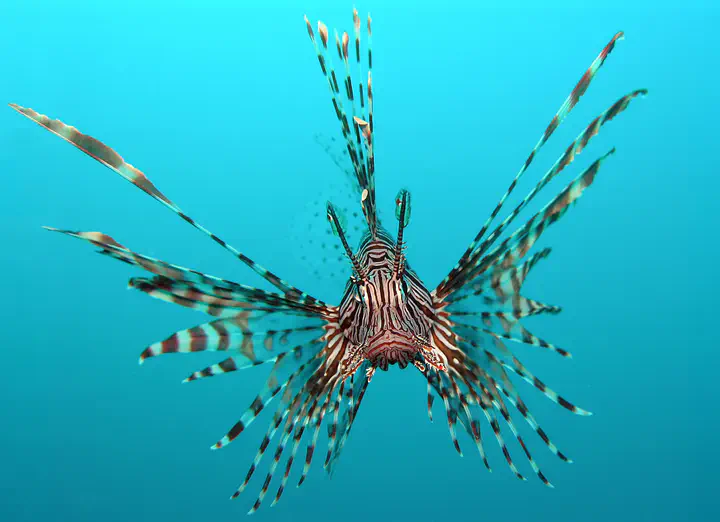A brief description of invasive lionfish (Pterois sp.) diet composition in the Arrecifes de Cozumel National Park
 Image credit: Jens Peterson
Image credit: Jens PetersonAbstract
Invasive lionfish (Pterois sp.) have the potential to affect reef communities in the western Atlantic through predation on native species. Lionfish are opportunistic generalist carnivores whose diet varies significantly among locations due to differences in local prey assemblages. As such, site-specific diet studies are needed to better inform local research and monitoring. The objective of this study was to describe lionfish diet in the Arrecifes de Cozumel National Park (ACNP), an ecologically and economically important marine protected area along the eastern Yucatan Peninsula. Through the analysis 343 lionfish stomachs, we determined that 1) species of the genera Sparisoma, Stegastes, Bothus, Haemulon, and Serranus are the most important prey to lionfish diet in the ACNP, 2) lionfish in the ACNP transition from a shrimp to a fish dominated diet through ontogeny, and 3) the contribution of crabs to lionfish diet in the ACNP is the largest observed in the western Atlantic to date. The data presented here can be used to inform research and monitoring efforts in and around the ACNP.